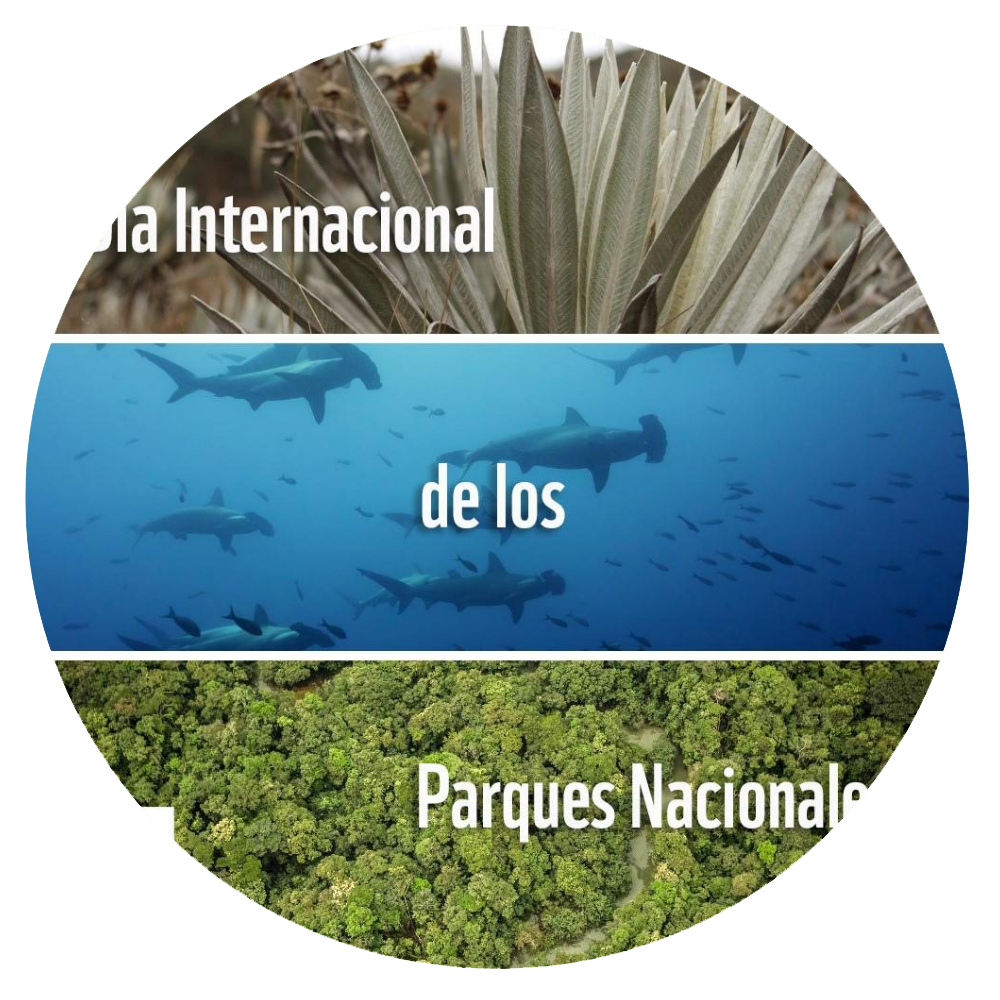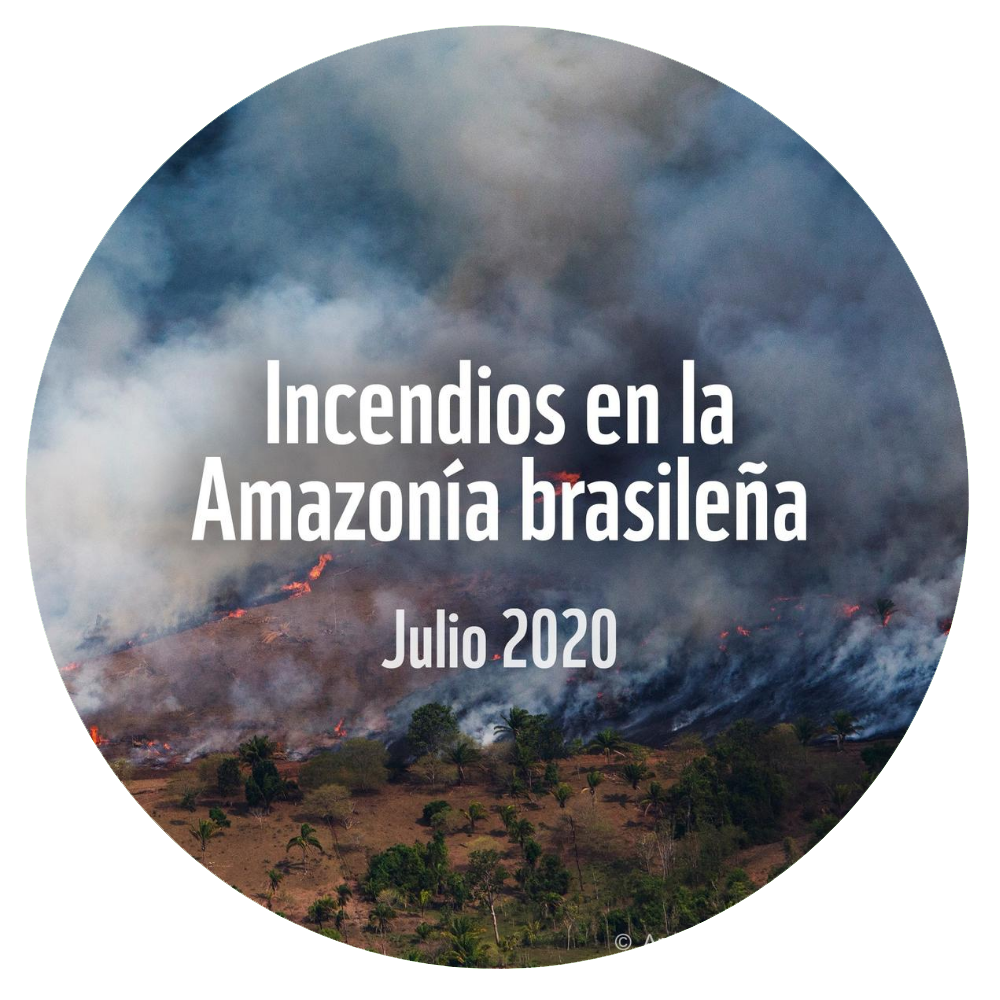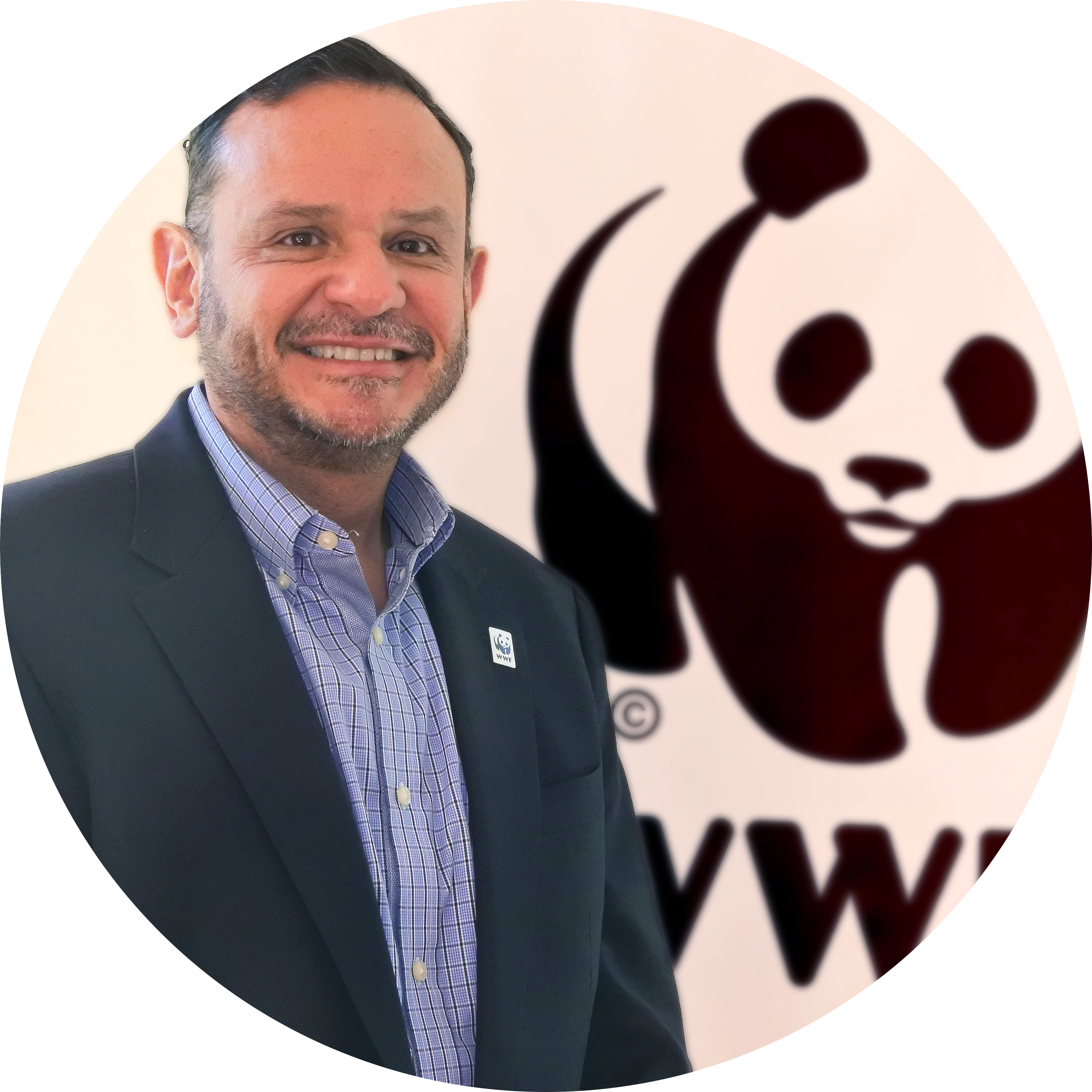The WWF is run at a local level by the following offices...
- WWF Global
- Adria
- Argentina
- Armenia
- AsiaPacific
- Australia
- Austria
- Azerbaijan
- Belgium
- Bhutan
- Bolivia
- Borneo
- Brazil
- Bulgaria
- Cambodia
- Cameroon
- Canada
- Caucasus
- Central African Republic
- Central America
- Central Asia
- Chile
- China
- Colombia
- Croatia
- Democratic Republic of the Congo
- Denmark
- Ecuador
- European Policy Office
- Finland
Friends and colleagues,
We all remember with regret the fires that took place last year in the Amazon, Chiquitanía, Pantanal and other important ecosystems of South America. This month, with the arrival of the fire season, from our work in Forests we strengthen the call to leaders to take action in the face of this recurring crisis, which could be even worse this year than in 2019.
In Forests, WWF offices in Latin America, led by WWF-Bolivia, launched the campaign #NatureNeedsYou (#LaNaturalezaTeNecesita) to call for action and commitment from local leaders. Meanwhile, WWF-Brazil, along with more than 60 NGOs, delivered five emergency measures to parliamentarians and investors to combat the deforestation crisis in the Amazon.
In relation to Oceans, WWF-Ecuador signed a cooperation agreement with the National Federation of Fishing Cooperatives of Ecuador, that will allow them to move towards creating a sustainable pomada shrimp fishery.
For our Wildlife practice, a seminar on wildlife rescue from fires was held in Brazil, thanks to SOS Amazônia and the support from WWF-Brazil. Meanwhile, Fundación Vida Silvestre Argentina launched a new Instagram filter to raise awareness about wildlife roadkill.
With work in Governance, WWF-Ecuador signed a scientific and educational cooperation agreement with INABIO, the National Institute for Biodiversity of Ecuador.
In Climate and Energy, Mexico City was named the winner of the WWF 2019-2020 City Challenge and reiterated its commitment to working to stop climate change with the highest level of ambition.
With regard to Finance, WWF-Chile presented a series of proposals for a “green and blue” economic reactivation, which could allow to lay the foundations for a solidary and sustainable future.
Finally, in education, WWF-Colombia launched the online course Together Possible, aimed at young Latin Americans between the ages of 18 and 34. In addition, Kurt Holle, director of WWF-Peru, highlighted through an opinion article the role of youth as a generation committed to a sustainable world.
Enjoy this new edition,
Roberto Troya
Vice president & Regional Director
WWF-LAC launches Nature Needs You Campaign
With the hashtag #LaNaturalezaTeNecesita (“Nature Needs You”), WWF-Bolivia, in coordination with the Paraguay and Brazil offices, launched a campaign to share information about the impact of the 2019 fires and the importance of protecting the affected natural areas. Additionally, the initiative looks to promote actions that protect and restore nature, including a petition, so that the region’s decisionmakers and Bolivian candidates for national elections commit and propose actions on this issue.
BRAZIL
Five emergency measures to fight the deforestation crisis in the Amazon
Last August 6th, more than 60 NGOs and collectives delivered a letter with five emergency proposals to contain the deforestation crisis in the Amazon - which will soon surpass previous highs in 2020 - to the presidents of the Chamber of Deputies and the Federal Senate, foreign investors and Brazilian and European parliamentarians. The emergency measures are:
- Moratorium on deforestation in the Amazon
- Increased penalties for environmental crimes and deforestation
- Immediate resumption of PPCDAm (Action Plan for Prevention and Control of Deforestation in the Legal Amazon)
- Demarcation of indigenous and quilombola territories, and creation, regularization and protection of Conservation Units
- Restructuring of Ibama, ICMBio and Funai
ECUADOR
Collaborative work paves the way for sustainable fishing in the Gulf of Guayaquil
WWF-Ecuador and the National Federation of Fisheries Cooperatives of Ecuador, FENACOPEC, signed a cooperation agreement that will allow the implementation of the formalization plan for the pomada shrimp fishery, an artisanal and informal activity that has been carried out by the “bolseros” for more than 50 years. The "bolseros", named after their activity, which consists on capturing pomade shrimps with bag nets in their traditional fishing zone, will participate and be the main beneficiaries of this agreement.
BRAZIL
Seminar on wildlife rescue from fires
Images of animals killed, injured, and cornered by fires in the Amazon last year resonated around the world. When they manage to escape the flames, many animals lose their lives when hit by vehicles on dirt and urban roads - or even attacked by domestic animals. To mitigate this problem, the NGO SOS Amazônia, with support from WWF-Brazil, held the online seminar “Care and Procedures for Rescuing Fauna Affected by Fire Activity in the State of Acre.” Between June and July, members of civil society organizations, academia, environmental protection, and inspection agencies discussed this issue for a month to establish protocols.
ARGENTINA
Instagram filter helps raise awareness about wildlife roadkill
Fundación Vida Silvestre presented an interactive Instagram filter that will raise awareness about a problem that affects the country's wildlife and is a significant threat to the jaguar. Through role-play, the filter "Save the jaguar" puts the user in the animal’s place while trying to avoid being run over by cars and trucks on a route that crosses a protected area. Although it is a virtual experience created for a social media platform, it seeks to demonstrate that, for wildlife, roadkill is not a game, in fact, they are a real threat.
Only on the routes that cross forest areas in the north of the province of Misiones, Argentina, more than 3,000 animals are killed each year by drivers who do not respect the established speed limits.
ECUADOR
INABIO and WWF-Ecuador agree on scientific and educational cooperation
The National Institute for Biodiversity of Ecuador (INABIO) and WWF signed an agreement that will provide opportunities for the country to promote the conservation of its biodiversity and to create a more sustainable society. The agreement seeks to boost efforts for scientific and educational cooperation focused on conservation, bioeconomy, sustainable development and climate change in Ecuador.
MEXICO
Mexico City commits to climate neutrality
At the Forum of Environmental Authorities of the Americas, Mexico City (CDMX) reaffirmed its commitment to face the climate emergency with the highest level of ambition, aiming to achieve carbon neutrality in 2050, aligning efforts with the commitments of the Paris Agreement. Due to the climate leadership it has shown in recent decades and the high level of ambition in commitments such as this one, CDMX was named the winning city of the 2019-2020 edition of the WWF Cities Challenge.
CHILE
WWF-Chile proposes a "green and blue" economic reactivation
At a global level, the health, social and economic crisis generated by COVID-19 has brought the urgent need for a deep transformation of the economy, which considers sustainability and equity as pillars for a solid development that is resilient to future crises. The process of economic reactivation or recovery that many countries are beginning is an opportunity to further to this approach – a chance that Chile cannot pass up either. In this regard, WWF-Chile generated a series of recommendations in a document named “Post-pandemic Green and Blue Reactivation. Bases for a supportive and sustainable future in Chile”, available here.
COLOMBIA
Together Possible online course
WWF Colombia launched ‘Together Possible,’ an online course for Latin Americans youth between 18 and 34 years of age. Through short educational videos, divided into 6 sections, the course's main goal is to help young people understand the main environmental problems that currently affect the planet, the relationship between consumption habits and nature, the urgency for action, and how they can contribute to change in their daily lives. 1,300 people have already enrolled in the course and it will be open to those who sign up for Generation 10, the first global youth network for the planet, which already has 9,000 people registered.
PERU
Youth, a generation committed to a sustainable world
Today, humanity is facing an extraordinary time due to the COVID-19 pandemic. We have witnessed how every aspect of society must reinvent itself and become resilient to the challenges ahead. The social isolation from the last few months has taught us the value of using creativity and taking advantage of digital spaces to reach more people. This has been reflected within the different areas of society, including education, which must be seen as a tool to face the different problems that arise, being one of the main the accelerated loss of nature and its resources. Faced with this problem, young people become key actors in the fight and the search for solutions to counteract it.
- +7,200 interactions (likes, reactions, comments and shares) generated by contents in Spanish at WWF International's Facebook.
- +258K users reached.
Featured posts:

International Day of the National Parks
1,794 interactions

Fires in the Brazilian Amazon
785 interactions
Data: August 1-28, 2020 (Facebook Statistics)
- +287.6 K impressions and +4.8K engagements (1.3K retweets) in @WWF-LAC.

International Day of the National Parks
136 retweets, 281 likes

Mario Ruiz from the 20 of the 20
46 retweets, 445 likes
Data: August 1-28, 2020 (Twitter Analytics)
